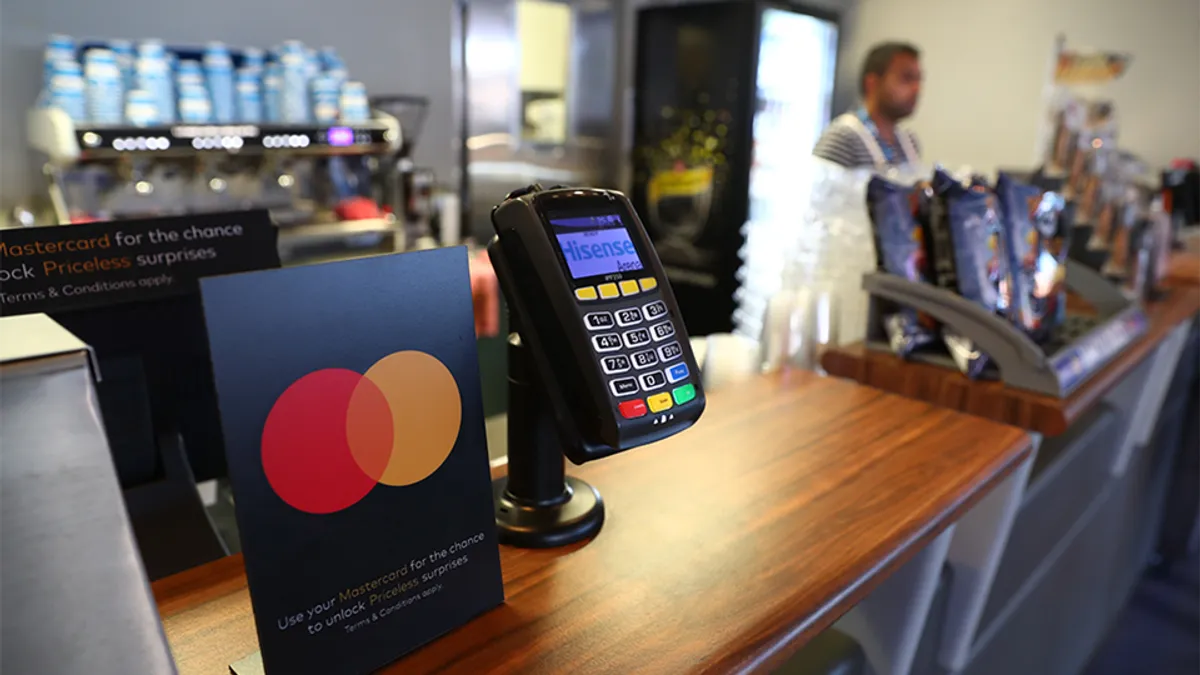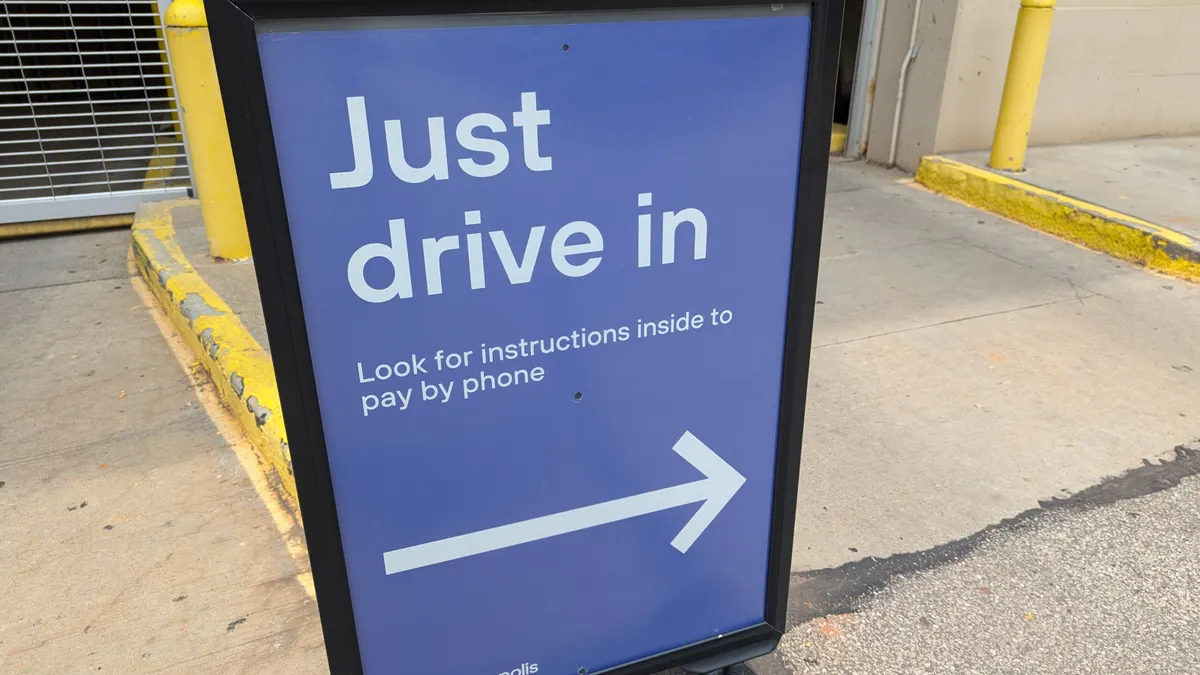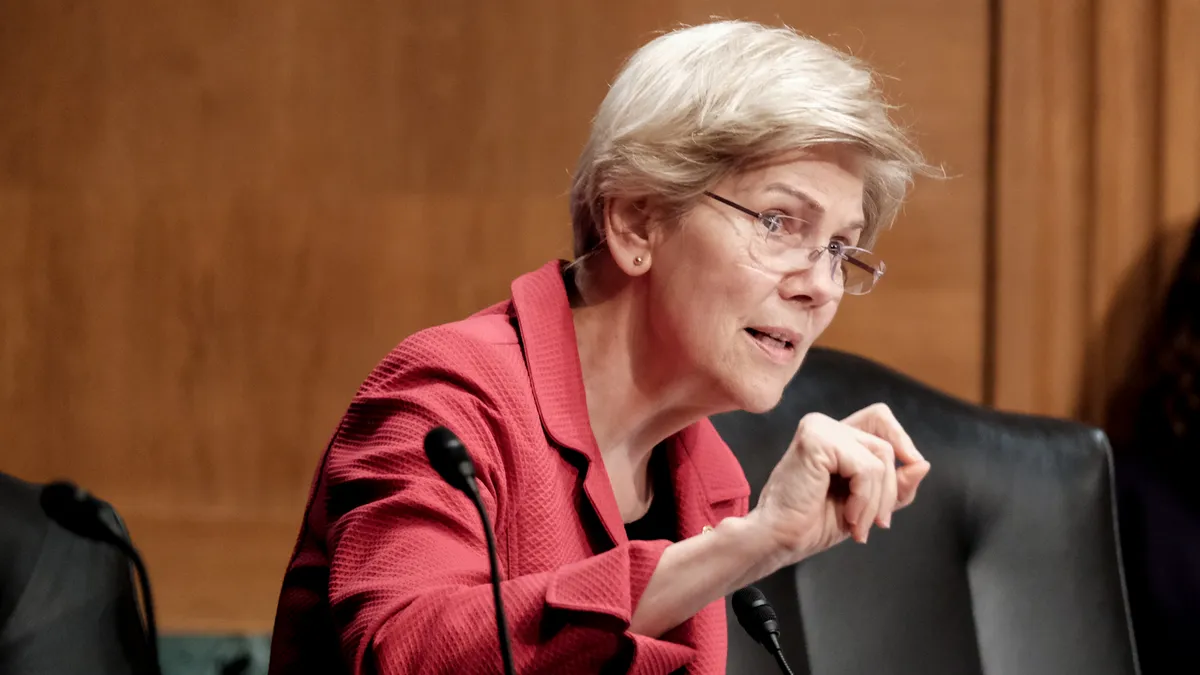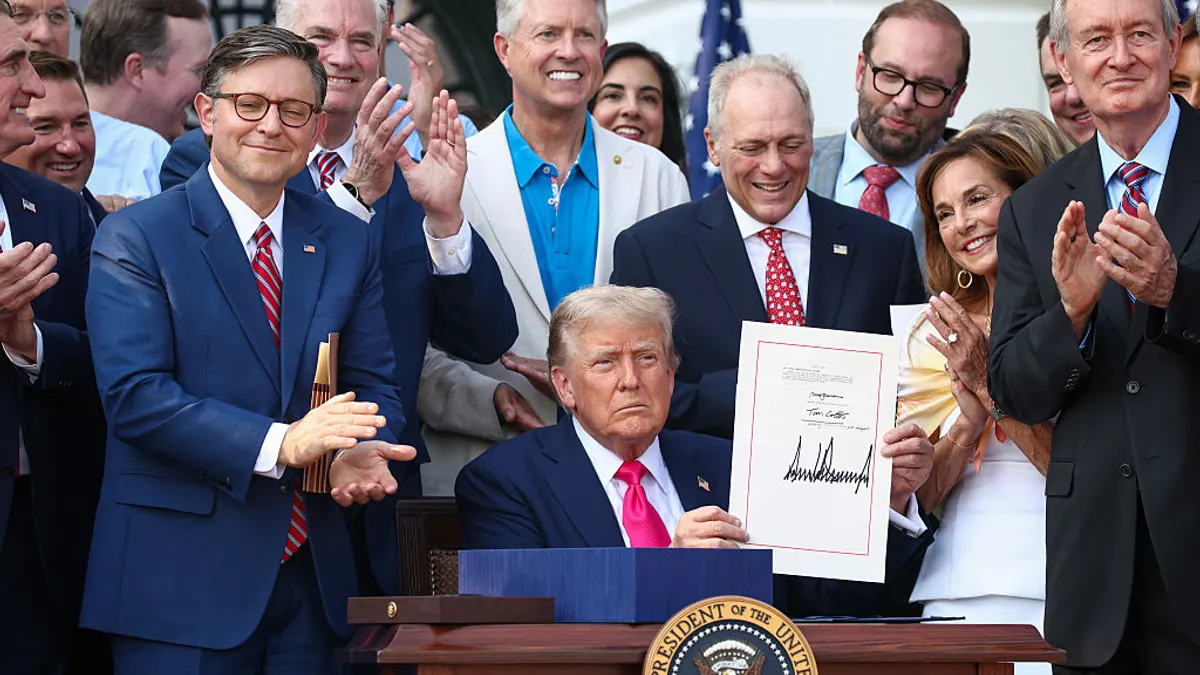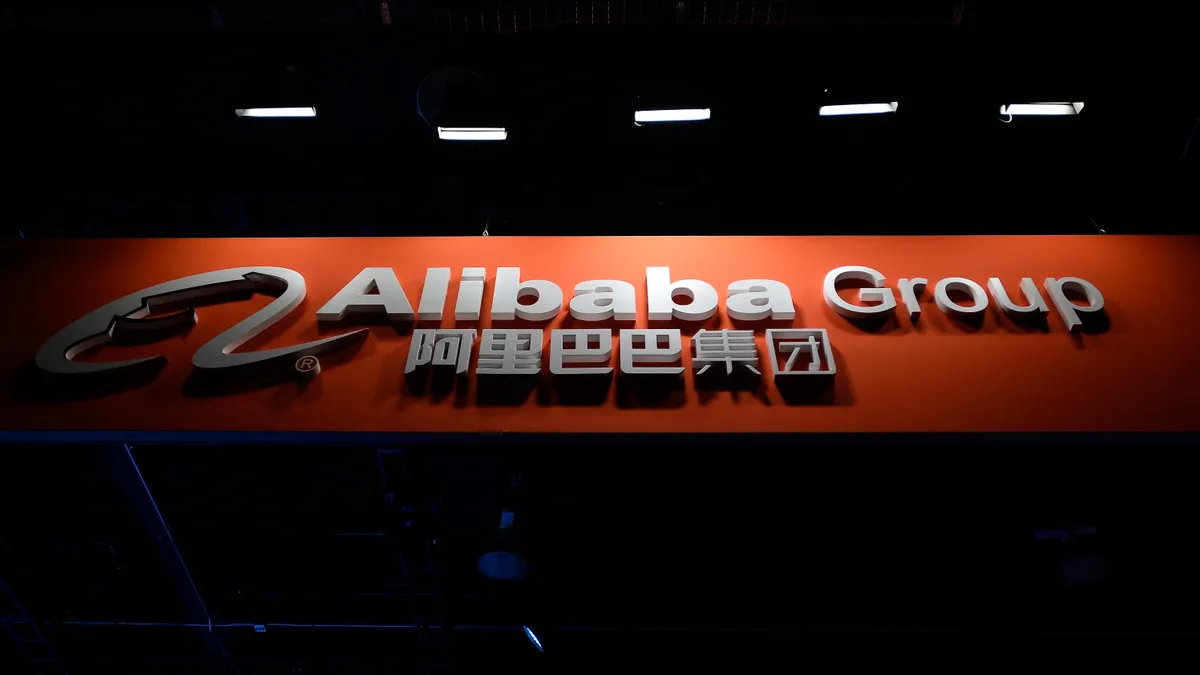Mastercard Chief Executive Michael Miebach on Tuesday rebutted a Wall Street Journal story last week that reported the card company and its larger rival Visa would increase credit card interchange and network fees for merchants starting later this year.
The CEO delved into industry terminology during an investor presentation to suggest that the newspaper’s reporting failed to distinguish between various fees in a piece that lumped the two biggest U.S. card networks together. Mastercard made similar points in a website post Tuesday.
“My headline on that headline of the Journal report is that the article is plainly wrong,” Miebach said at an investor conference hosted by the investment bank Goldman Sachs. “It's misrepresenting what’s actually going on. We have had no plans and we have no plans to change interchange this fall in the United States. And we made that very clear to the publication.”
The Journal reported that the fee increases are scheduled to start later this year. “The fee increases are scheduled to start in October and April, according to people familiar with the matter and documents viewed by The Wall Street Journal,” the newspaper reported.
The Journal also relied on statistics from CMSPI, a research firm that works with merchants. “Increases in network fees will make up a little more than half of that revenue, CMSPI estimated,” the paper reported. “The rest will come from increases in interchange fees, also called swipe fees.” The firm said the increases would lead to merchants, including retailers and restaurants, paying another $502 million annually.
It’s unusual for companies to publicly push back against a major newspaper’s reporting. In this case, the rebuttal comes as Mastercard and Visa face increased federal regulation of credit card transactions. The Credit Card Competition Act proposal pending before Congress would require that a competing network be enabled for all merchants for the processing of credit card transactions.
In its website post, Mastercard explicitly said that it’s not increasing interchange this year. It also said it’s not raising “network fees required for the processing of Mastercard transactions this fall.”
It acknowledged that another service fee mentioned in the paper may indeed be increasing. That’s a fee for what Mastercard referred to as its “Authorization Optimizer service,” which allows merchants to retry processing a consumer’s card when a transaction fails the first time. “This service is designed to reduce the likelihood that subscription and recurring payments will be declined, with any related fees being de minimis in scope,” the company said.
CMSPI maintained that Mastercard has plans to increase some of its fees. “According to public sources, both of the largest U.S. card brands will increase certain fees in the coming months,” the research firm’s chief economist, Callum Godwin, said in an emailed statement.
CMSPI pointed to a document from merchant processing firm Worldpay, a unit of Fidelity National Information Services, as the basis for its fee change information.
The CCCA bill has attracted bipartisan support, but it also faces significant opposition. Merchant and retail trade groups, such as the National Retail Federation and National Restaurant Association, support the legislation as a means to reduce the billions of dollars in fees their members collectively face each year from consumers swiping credit cards. However, bank and payments trade groups, including the Electronic Payments Coalition, are fighting the bill as an infringement on open competition in the marketplace.
On that point, Mastercard had this to say in its post: “The article notes that Congress is considering legislation that could potentially lower costs for merchants, yet it fails to mention the negative consequences for consumers – compromised security, a loss of rewards programs and higher prices on goods and services.”
Visa took a different tack in countering The Wall Street Journal piece, arguing in an emailed statement that it hasn’t increased fees notably and that it has cut fees for some businesses.
“Visa’s overall interchange fees have remained flat for more than a decade,” the company said in the emailed statement. “Moreover, over the past few years, Visa has lowered interchange for the vast majority of small businesses and in key segments such as supermarkets and quick service restaurants.”
Visa also contended that its fees help fund innovations that drive down fraud expenses in a benefit to all the actors in the credit payment ecosystem, including merchants. It spelled these arguments out in a separate Tuesday blog post in response to the paper’s reporting under the headline “Sometimes headlines don’t tell the whole story.”
The Wall Street Journal didn’t immediately respond to requests for comment.



